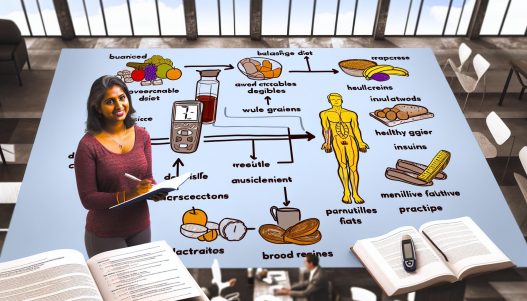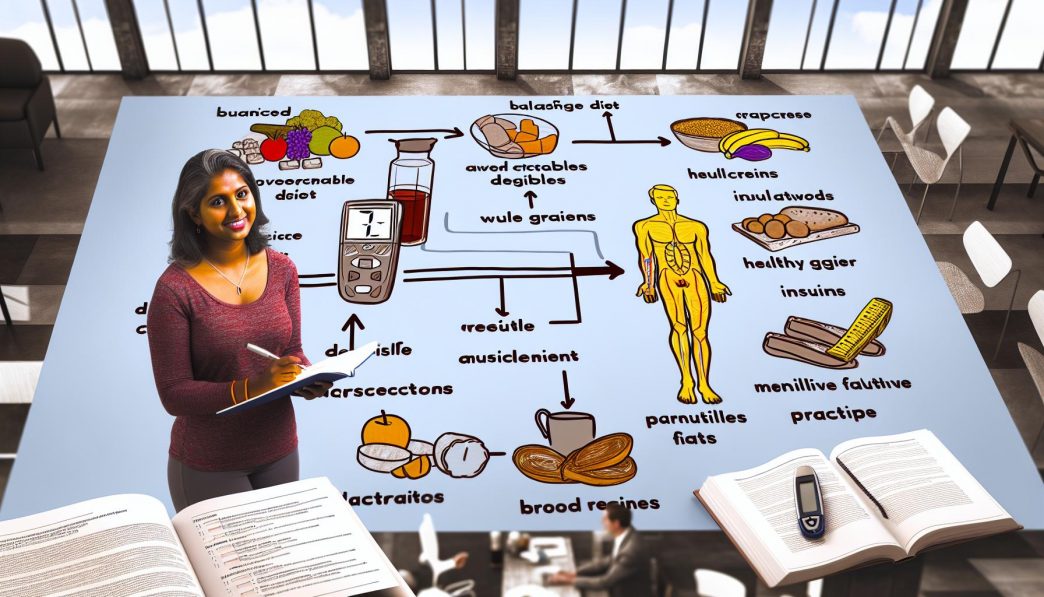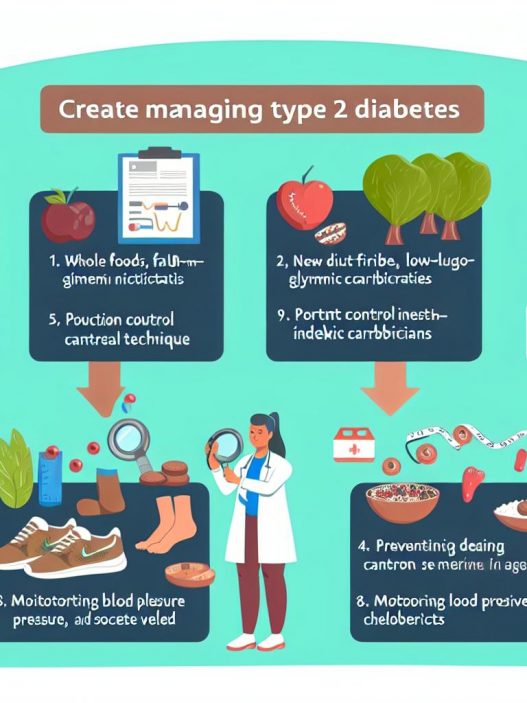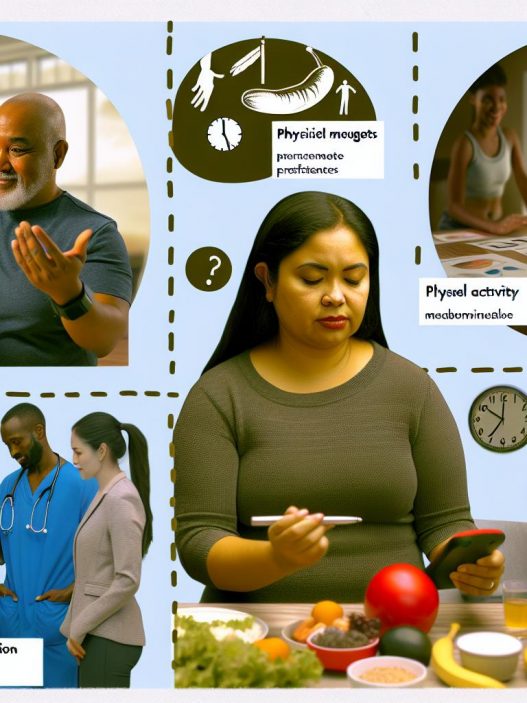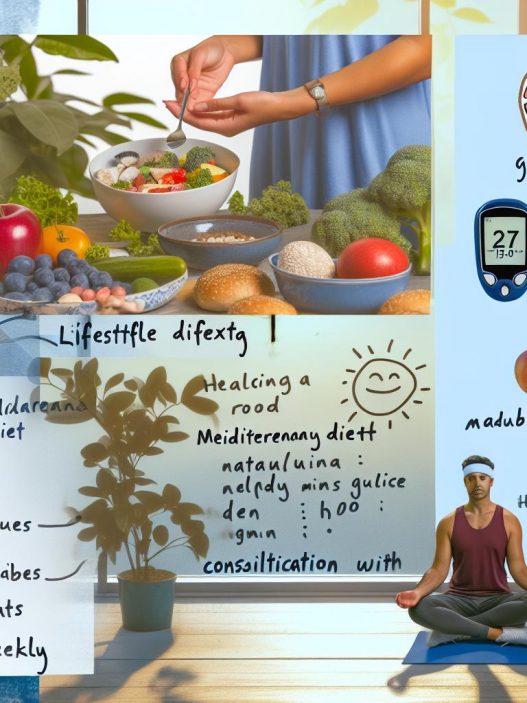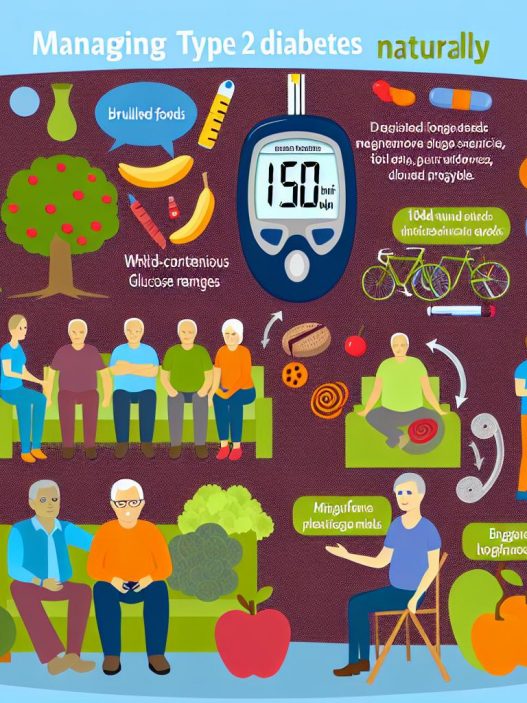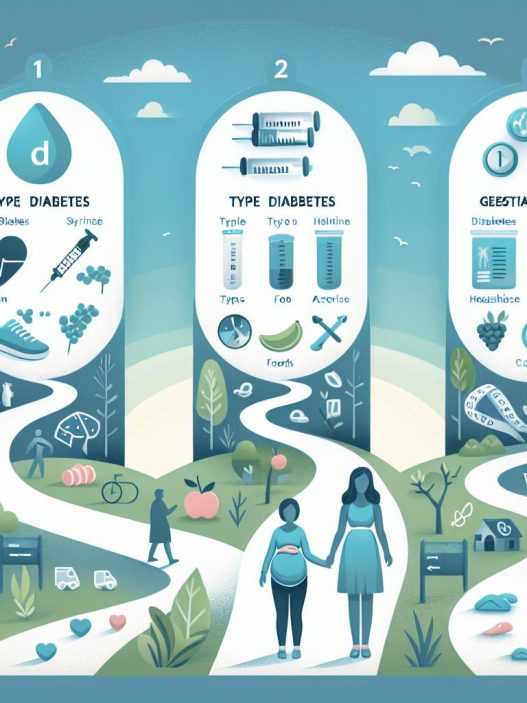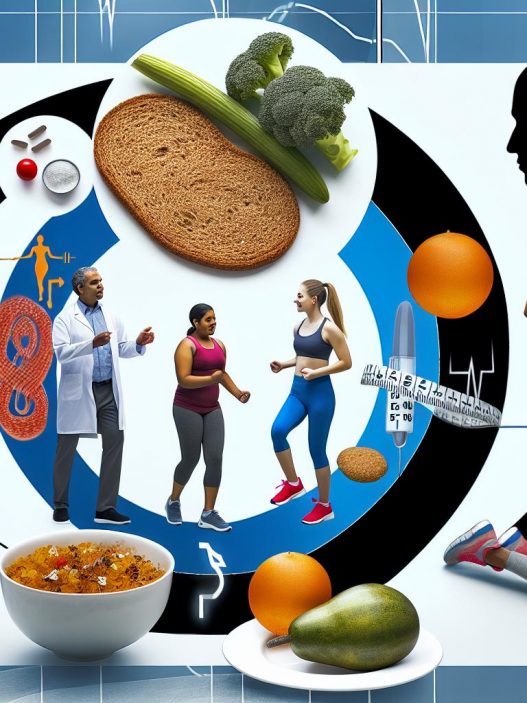# Practical Tips for Managing Type 2 Diabetes Effectively Today
Managing Type 2 diabetes can seem overwhelming, but with the right strategies and tools, it’s possible to lead a healthy and fulfilling life. This article is designed to provide you with practical tips for managing Type 2 diabetes effectively today. By understanding the importance of lifestyle adjustments, meal planning, exercise, and monitoring, you can take control of your health and minimize the impact of diabetes on your daily routine.
Understanding Type 2 Diabetes
To effectively manage Type 2 diabetes, it’s crucial to understand what it is. Type 2 diabetes is a chronic condition that affects the way your body metabolizes sugar (glucose), which is an important source of energy for your body. In Type 2 diabetes, the body is either resistant to the effects of insulin—a hormone that helps regulate glucose levels—or doesn’t produce enough insulin to maintain a normal glucose level. This leads to elevated blood sugar levels, which can result in serious health problems if not managed effectively.
The management of Type 2 diabetes focuses on lifestyle changes. These include a balanced diet, regular physical activity, and monitoring blood sugar levels. When integrated into daily life, these strategies not only help control blood sugar levels but also improve overall health and well-being.
Importance of a Balanced Diet for Diabetics
A balanced diet is one of the cornerstones of diabetes management. Consuming a variety of foods in appropriate portions can help maintain blood glucose levels within the target range. Focus on incorporating whole, unprocessed foods into your diet. This includes fruits, vegetables, whole grains, lean proteins, and healthy fats. It’s essential to limit processed foods that are high in added sugars and unhealthy fats, as these can lead to spikes in blood sugar levels.
Monitoring carbohydrate intake is also crucial. Carbohydrates have the most significant impact on blood sugar levels, so it’s essential to be mindful of the types and amounts consumed. Complex carbohydrates, such as those found in whole grains, legumes, and vegetables, tend to have a slower impact on blood sugar. Pairing carbohydrates with lean proteins or healthy fats can also mitigate rapid spikes in glucose levels, creating a more stable energy release throughout the day.
Meal Planning and Preparation Strategies
Meal planning is an efficient way to ensure that you are eating healthily and in accordance with your diabetes management goals. Preparing meals in advance allows you to control ingredients while minimizing the temptation to opt for fast food or sugary snacks. Aim to plan your meals weekly, incorporating a variety of foods to ensure you receive all the essential nutrients.
Consider using tools like meal prep containers or apps to help organize your meals. Outlining your meals and snacks for the week can make it easier to stick to your dietary goals. Make sure to incorporate plenty of vegetables, whole grains, and lean protein sources. For added convenience, batch-cook meals that can be easily reheated during the week. This not only saves time but can help you avoid unhealthy last-minute choices.
Additionally, keeping a food diary can enhance your awareness of what you eat and how it impacts your blood sugar levels. By tracking your food intake, you can identify trends, such as which foods cause spikes in glucose, enabling you to make informed dietary choices.
The Role of Exercise in Diabetes Management
Incorporating physical activity into your daily routine is essential for managing Type 2 diabetes effectively. Exercise helps to lower blood sugar levels by enhancing insulin sensitivity, allowing your body to use glucose more efficiently. It also promotes weight loss and improves cardiovascular health, which is especially important for individuals with diabetes who are at higher risk for heart-related conditions.
Aim for at least 150 minutes of moderate-intensity aerobic exercise every week, such as brisk walking, cycling, or swimming. In addition to aerobic activity, it’s beneficial to include strength training exercises at least twice a week. Building muscle mass can further enhance insulin sensitivity and improve overall metabolic function.
Finding activities you enjoy can make it easier to stay consistent with your exercise routine. Consider joining a local fitness group, enrolling in classes, or engaging in activities with friends or family. Setting realistic goals and tracking your progress can also help keep you motivated and accountable.
Monitoring Blood Sugar Levels Regularly
Regular monitoring of blood sugar levels is vital for effectively managing Type 2 diabetes. By keeping track of your glucose readings, you can make informed decisions about diet, exercise, and medications. Your healthcare provider will help you determine how often you should check your blood sugar levels based on your specific treatment plan.
Investing in a quality blood glucose monitor can make this task easier and more efficient. Many modern devices provide real-time data, making it simple to identify patterns or trends in your blood sugar levels. Use the information gathered to adjust your diet, exercise, and treatment regimen accordingly. It’s important to pay attention to how different foods and activities influence your readings.
Regular check-ups with your healthcare team can also provide valuable insights. Your doctor may recommend periodic A1C tests to assess your average blood sugar levels over the past two to three months, giving you a broader picture of your diabetes management.
Stress Management Techniques for Diabetes
Stress can significantly impact diabetes management, as it can lead to hormonal changes that raise blood glucose levels. Adopting effective stress management techniques is crucial for maintaining your health. Practices such as mindfulness meditation, yoga, and deep-breathing exercises can help alleviate stress and promote relaxation.
Additionally, engaging in hobbies and activities that bring you joy can serve as great stress relievers. Whether it’s taking a leisurely walk, painting, or spending time with loved ones, incorporating more enjoyable activities into your routine can enhance your overall well-being.
Consider making time for regular self-care, such as getting sufficient sleep, ensuring you engage in physical activity, and nurturing social connections. Connecting with others who share similar challenges, such as diabetes support groups, can also provide emotional support and guidance.
By implementing these practical tips for managing Type 2 diabetes effectively, you can take control of your health and live a fulfilling life. Remember that diabetes management is an ongoing journey that requires dedication and adaptation. Stay informed and proactive, and you’ll be well-equipped to navigate this condition with confidence.










